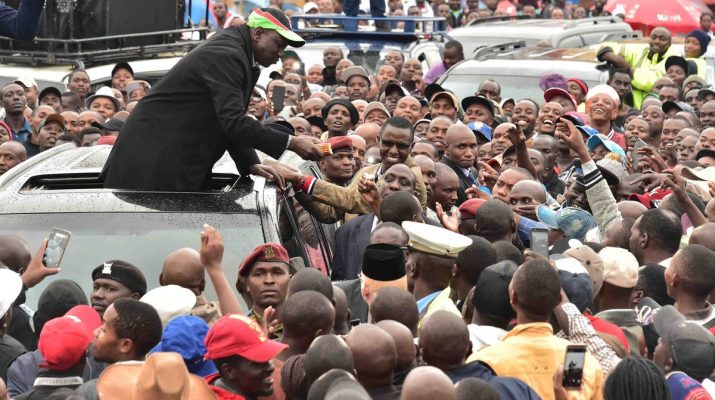By Mercy Imali
Competing political interests within the ruling party pitting President Uhuru’s camp against his Deputy William Ruto, have scuttled efforts to craft a harmonised Jubilee document for Building Bridges Initiative (BBI).
Jubilee secretary general, Raphael Tuju lifted the lid on the huge rift when he said Jubilee members were all free to individually present their views. There would be no common position, he said.
Tuju said, “As a party, we are not presenting any views to the BBI. We are a democratic party and our members are free to present their opinions to the BBI. We can’t take a position on behalf of Kenyans but we will let Kenyans go for what they want. We want Kenyans to continue having and enjoying freedom on how they should be governed.”
Party officials have been fighting for months as the two camps fight for control ahead of 2022 polls. On January 6th the party vice chairman David Murathe quit, saying he would no longer work with the Deputy President.
He then launched a Stop Ruto movement and said Ruto is unfit to succeed the President.
Jubilee has failed to hold key meetings and elections as a result of the push-and-pull succession politics. On his end, Ruto blames ODM leader Raila Odinga for his woes. The DP says that since Raila shook hands with Uhuru, Jubilee has experienced severe turbulence.
The bitter differences have destroyed the possibility of a common Jubilee position on contentious issues, including the referendum.
“The problem in Jubilee is succession where people fear that Uhuru might contest for a position of prime minister if the referendum goes through,” a top Jubilee senator told the Star.
In January, ODM’s Central Management Committee, in a leaked report that was to be presented to the BBI task force, proposed re-introduction the post of Prime Minister. He or she would lead the government and have two deputies.
The president would only be ceremonial and serve a non-renewable seven-year term.
In the leaked report, Jubilee also proposed the introduction of 14 regional governments on top of the national and county governments. It called for the elevation of the Senate to be an Upper House with veto powers.

